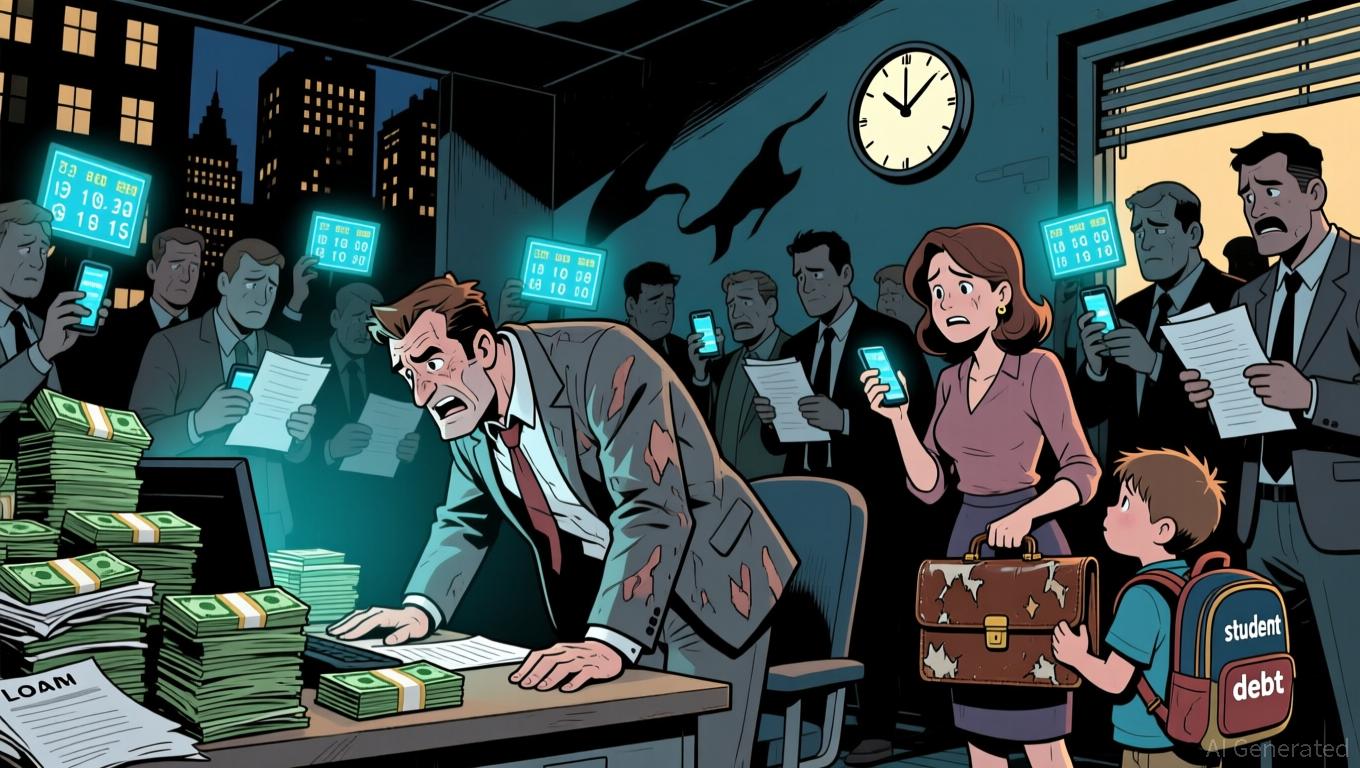Courts Mandate Trump to Provide SNAP Funding, Preventing the Use of Hunger as a Tool
- Federal judges in Rhode Island and Massachusetts ordered the Trump administration to use emergency funds to continue SNAP benefits during the government shutdown, preventing aid suspension for 42 million Americans. - The administration claimed insufficient funds, but plaintiffs highlighted $28.25 billion in available reserves, challenging the legality of halting aid. - Courts deemed the suspension "unlawful," emphasizing the government's duty to use existing tools, while the USDA plans to appeal, risking
On Friday, federal judges in both Rhode Island and Massachusetts directed the Trump administration to keep funding the Supplemental Nutrition Assistance Program (SNAP) throughout the ongoing government shutdown. The courts required the use of emergency contingency funds to avoid an unprecedented halt in food assistance for 42 million Americans with low incomes. These decisions, delivered within hours of each other, represent a major legal setback for the administration’s assertion that there are not enough funds to meet the program’s $8.5 to $9 billion monthly expenses, according to
Earlier this week, the Trump administration stated that SNAP benefits—normally provided through reloadable debit cards—would be suspended in November due to the shutdown, which reached its 33rd day on November 3. The USDA claimed it lacked the authority to distribute funds until Congress approved a new spending bill, a stance House Speaker Mike Johnson described as President Trump being "desperate" to end the deadlock, as reported by

U.S. District Judge John McConnell in Providence issued a temporary restraining order, labeling the benefit suspension as "unlawful" and cautioning that it would cause "irreparable harm" to families struggling with hunger. In a separate ruling in Boston, Judge Indira Talwani gave the administration until Monday to decide whether it would use emergency funds for partial or full payments, according to the BBC. Both judges highlighted the government’s legal responsibility to keep SNAP running, with Talwani insisting the administration must "utilize available resources to meet its obligations."
The USDA’s position has faced criticism from both political parties. Some states, such as California and New York, have promised to use state money to cover any funding gaps, but the federal government has declined to reimburse them, the BBC reported. The administration has also been criticized for prioritizing a $300 million renovation of a White House ballroom at the same time, as noted by The Guardian.
Legal advocates welcomed the court decisions as a win for at-risk communities. A coalition of cities and nonprofit organizations said the rulings "affirm a core value: no administration should exploit hunger for political purposes," according to the BBC. Nevertheless, the USDA announced plans to appeal, which could further delay benefit payments. The process of reloading debit cards, which usually takes one to two weeks, continues to pose logistical difficulties for those relying on SNAP, as reported by
The shutdown, which began due to disputes over immigration and federal spending, has left government agencies with limited personnel and resources. Although the rulings have temporarily protected SNAP benefits, the larger political conflict remains unresolved.
Disclaimer: The content of this article solely reflects the author's opinion and does not represent the platform in any capacity. This article is not intended to serve as a reference for making investment decisions.
You may also like
Supreme Court Decision on Tariffs May Require $140 Billion in Refunds and Prompt Federal Reserve to Lower Rates
- UBS warns a Supreme Court ruling against Trump's tariffs could force $140B refunds, straining U.S. fiscal resources and prompting potential Fed rate cuts. - The refunds stem from 39% Swiss tariffs deemed potentially unlawful, with fiscal impact equivalent to 7.9% of 2025's projected budget deficit. - Legal challenges highlight executive overreach risks, while reduced tariffs could boost consumer spending and ease inflation, creating room for Fed easing. - Swiss business leaders have lobbied Trump to lowe

Ethereum Updates: TRON's GreatVoyage: Strengthening USDT's $122B Network to Compete with Ethereum

Arm's Low-Power Architectures Overcome AI Energy Constraints, Fuel 34% Growth in Revenue
- Arm Holdings reported $1.14B Q3 revenue, 34% YoY growth surpassing forecasts, driven by AI/data center demand. - Royalty revenue rose 21% to $620M while licensing revenue jumped 56% to $515M, reflecting strong IP adoption. - Strategic shift to develop full-chip solutions via Compute Sub Systems aims to compete with Nvidia/Amazon in AI hardware. - Parent company SoftBank explored Arm-Marvell merger to strengthen AI infrastructure, highlighting industry consolidation trends. - 20 "buy" ratings and $155 pri

Fed Faces a Choice: Boost Growth or Curb Mounting Debt?
- U.S. household debt hit $18.59 trillion in Q3 2025, driven by rising credit card, student loan, and home equity debt with delinquency rates at multi-year highs. - The Fed initiated rate cuts amid slowing job growth but faces a dilemma: easing economic strain risks inflating a consumer debt bubble while tightening worsens defaults. - Retailers, banks, and auto lenders face fallout as discretionary spending declines and loan defaults rise, while essential goods and debt collectors see increased demand. - P
